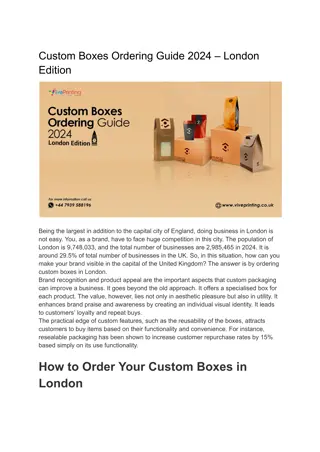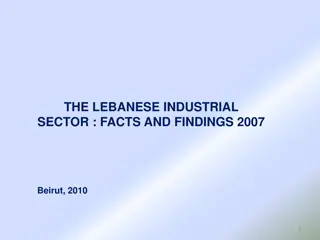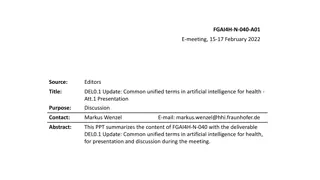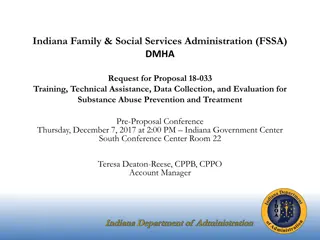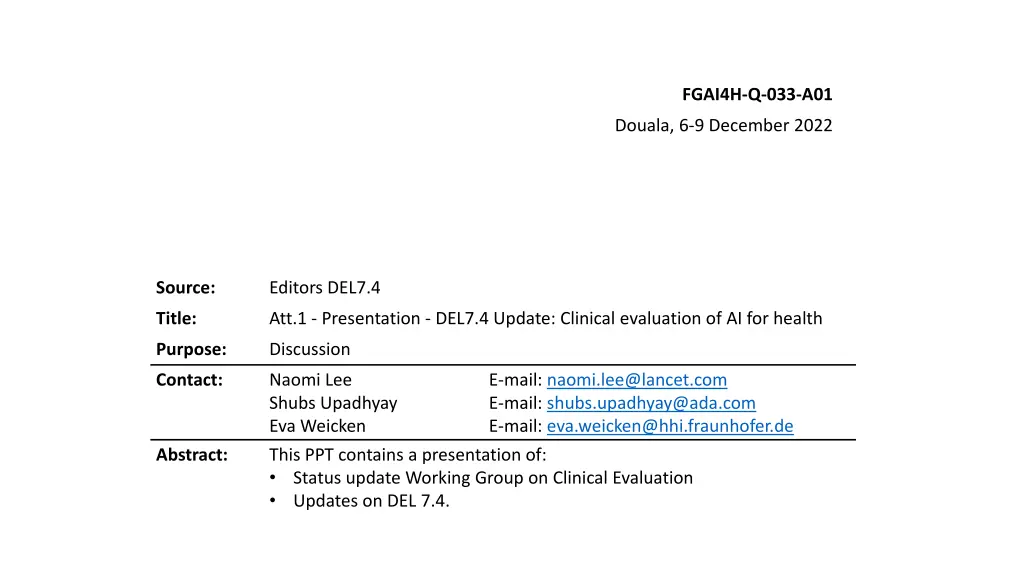
Clinical Evaluation of AI for Health Discussion
Explore the latest updates and collaborative efforts in the field of clinical evaluation of AI for health presented by the FG-AI4H Working Group. This presentation covers important topics such as collaboration with expert groups, guidance for best practice evaluation, and special considerations for LMIC settings. Engage with over 65 global stakeholders and experts to stay informed on the latest advancements.
Download Presentation

Please find below an Image/Link to download the presentation.
The content on the website is provided AS IS for your information and personal use only. It may not be sold, licensed, or shared on other websites without obtaining consent from the author. If you encounter any issues during the download, it is possible that the publisher has removed the file from their server.
You are allowed to download the files provided on this website for personal or commercial use, subject to the condition that they are used lawfully. All files are the property of their respective owners.
The content on the website is provided AS IS for your information and personal use only. It may not be sold, licensed, or shared on other websites without obtaining consent from the author.
E N D
Presentation Transcript
FGAI4H-Q-033-A01 Douala, 6-9 December 2022 Source: Editors DEL7.4 Title: Att.1 - Presentation - DEL7.4 Update: Clinical evaluation of AI for health Purpose: Discussion Contact: Naomi Lee Shubs Upadhyay Eva Weicken This PPT contains a presentation of: Status update Working Group on Clinical Evaluation Updates on DEL 7.4. E-mail: naomi.lee@lancet.com E-mail: shubs.upadhyay@ada.com E-mail: eva.weicken@hhi.fraunhofer.de Abstract:
FG-AI4H Working Group on Clinical Evaluation Deliverable 7.4 FG-AI4H meeting Q , 06-09 December 2022 Naomi Lee, Shubs Upadhyay, Eva Weicken
Overview & activities FG-AI4H Working Group on Clinical Evaluation
Objective Collaboration with other expert groups & global stakeholders Guidance for best practice evaluation andprinciples of evaluation Special consideration LMIC settings Framework for: clinicians, researchers, developers, regulators, policy makers & patients, public To be used with other FG-AI4H guidance
Collaboration 65+ members External expert group(in alphabetical order): AbouElkhir Osama (Tachy Health, Dubai), Akogo Darlington (minoHealth AI Labs, Ghana), Allen Megan (Inspired Ideas, Tanzania), Alsalamah Shada (WHO, Switzerland), Balachandran Pradeep (Freelancer E-Health, India), Bastawrous Andrew (Peek Vision, Global Eye Health, UK), Bathke Arne (Paris Godron University Salzburg, Austria), Chiavegatto Filho Alexandre (S o Paulo University, Brazil), Cresswell Kathrin (University of Edinburgh), Darkoh Ernest (BroadReach Healthcare, South Africa), Ehrenfeld Jesse (AMA, USA), Fehr Jana (Hasso-Plattner-Institute, DE), F rstenau Daniel (Copenhagen Business School, Denmark), Gaudin Robert (Charit , DE), Gilbert Stephen (University of Dresden, DE), Greaves Felix (Science, Evidence and Analytics, NICE, UK), Gupta Saurabh (Department of Cardiology, All Inst. of Medical Sciences, New Delhi), G tter Zdenek (University Hospital Olomouc, Czechia), Hatton Grace (Sensyne Health, UK), Ho Dean (National University of Singapore, Singapore), Ibrahim Hussein (Doctors.net.uk, UK), Islam Shariful (Deakin University, AUS), Jarral Reza (Pro Care, NZ), Jeon Jonghong (Electronics and Telecommuncations Research Institute, South Korea), John Oommen (George Institute for Global Health, India), Kadam Rigveda (Head of digital access, FIND, Switzerland), Kherif Ferath (LREN, Switzerland), Kuku Stephanie (WHO, UCL, Switzerland, UK), Kurtys Michal (Infermedica, Poland), Lap o Lu s (Velez) (University of Lisbon, Portugal), Linder Nina (University of Helsinki, Finland), Loh Irving (infermedica, USA), Loveys Kate (University of Auckland, NZ), Magrabi Farah (Macquarie University, Sydney, AUS), Mahajan Arnav (Department of Medicine, University College Cork, Ireland), Malpani Rohit (WHO, Switzerland), Mamun Khondaker (CMED Health, Bagladesh), Masud Jakir Hossain Bhuiyan (CTS Bangladesh), Matin Rubeta (Oxford University Hospitals NHS Foundation Trust, UK), Matthew Fenech (Una Health, DE), McCradden Melissa (University of Toronto, Canada), Menezes Audrey (Healthily, UK), Murchison Andrew (Oxford University Hospitals NHS Trust, UK), Murphy Lisa (Centre for Improving Data Collaboration at NHSX, UK), Nakasi Rose (Makerere University, Uganda), Oala Luis (Fraunhofer Heinrich Hertz Institute, DE), Pankova Natalie (Metadvice, UK), Piekut Agata (Health Action Tank, Poland), Porras Lina (1Doc3, Colombia), Reddy Sandeep (Deakin University, AUS), Salim Ally (Inspired Ideas, Tanzania), Schwendicke Falk (Charit , DE), Sethi Tavpritesh (Indraprastha Institute of Information Technology Delhi, India), Sood Harpreet (NHS, UK), Sousa In s (Fraunhofer Portugal, Portugal), Srivastava Manish (Virginia Polytechnic Institute & State Univ., USA), Starlinger Johannes (Howto Health Digital Business Solutions, DE), Wasswa William (Global Auto Systems LTD, Uganda), Werneck Leite Alixandro (Tribal, Mexico) Writing group (in alphabetical order): Carolan Jane (UCL Institute of Health Informatics, UK), Denniston Alastair (University of Birmingham, UK), Karpathakis Kassandra (Decimal.Health, USA), Lee Naomi (Lancet, UK), Liu Xiao (University of Birmingham, UK), Upadhyay Shubhanan (Ada Health, DE), Weicken Eva (Fraunhofer HHI, DE), Wilkinson Thomas (World Bank Group, USA)
The framework FG-AI4H Working Group on Clinical Evaluation
Table of content Executive Summary Introduction Model design and suitability Algorithmic validation Clinical validation Deployment and ongoing monitoring Economic evaluation Conclusions and recommendations for future action References Link to Del 7.4
Latest activities & next steps FG-AI4H Working Group on Clinical Evaluation
Latest activities Publication (alongside WG-RC document), submitted to WHO Outreach & communication, e.g., CAICT Collaboration, e.g., FIND Improvement and implementability, e.g., Helsinki University, topic group Point-of-care (case study, "testing" of WG-CE doc) Further work, e.g. Economic evaluation establish an expert group & finding a chair(s) and interested contributors
Outreach, collaborations, communication WG-CE meeting Oct 22: Identifying the What Education Create a shorter, condensed version (2-pager) Creating training materials (e.g., WHO-course) and slides for decision makers, developers WG-CE = forum for people to get the ability to get together & convene Accessibility Making sure this group is advocate for access to clinical evaluation for in health
Implementation, gaps & further work WG-CE meeting Oct 22: Identifying the What Implementation & Gaps Closing the implementation gap? Could include: case studies, round tables, WHO course, checklist Making sure to continuously involve FG-AI4H topic groups Focusing on LMIC or any other context? making sure results of evaluation trials in hospitals s are reported and shared transparently (a gap?) Implementation test by TG-POC will provide more information on the gaps of this document Economic evaluation Create an expert group on economic evaluation Need to find chair(s) and interested members & organize a follow-up meeting with experts
Who do we need to work on this? & How can the ideas be realized?
Thank you! For feedback & questions, please contact naomi.lee@lancet.com, shubs.upadhyay@ada.com, eva.weicken@hhi.fraunhofer.de


